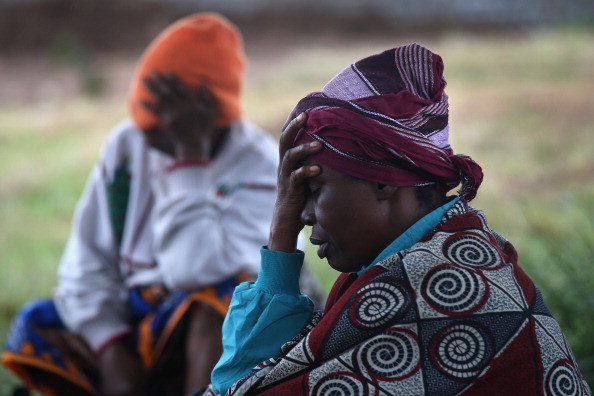Ebola Outbreak: Evidence of Gender Bias as More Women than Men Die of Deadly Virus

Fifty-five to sixty per cent of women make up the overall death toll of Ebola, with a reported seventy-five per cent of victims in Liberia being women, according to Foreign Policy.
Researchers are now claiming that attention to gender dynamics may help get a grip of this deadly epidemic.
"Differences in exposure between males and females have been shown to be important factors in transmission of EHF [Ebola hemorrhagic fever]. Therefore, it is important to understand the gender roles and responsibilities that affect exposure in the local area," said Martha Anker, a former statistician in communicable disease surveillance and response at the World Health Organization (WHO).
Looking at who dies in an outbreak shows you who has power and who doesn't. In a way, it holds a mirror to society. Maybe with Ebola it will bring to the fore the weaknesses in the health system ... the plight of people who have been disenfranchised. Maybe the lessons learned can help prevent the next epidemic.
Research shows that several infectious diseases affect one gender more than the other. For instance, Dengue fever is known to affect more men, compared with E.coli, HIV/Aids and Ebola, that have claimed more lives within the female gender.
H1N1 has also been infecting women over men by a 25 per cent margin, according to Foreign Policy.
Yet, medical experts are saying that too little is being done to put this knowledge into practice and develop a prevention strategy prior to an outbreak.
Ebola virus is known to spread through contact with blood and bodily fluids and since women are primary caregivers for the sick in West Africa, they continue to be major victims.
"If a man is sick, the woman can easily bathe him, but the man cannot do so," said Marpue Spear, Executive director of the Women's NGO Secretariat of Liberia (WONGOSOL). "Traditionally, women will take care of the men as compared to them taking care of the women."
Gender lens
Professor Sabra Klein from Johns Hopkins University, who researches on biology and immunology, says that to get "somewhere" with this knowledge requires conscious analysis of the situation through a gender lens.
Professor Klein says challenging gender disparities are fundamental in tackling the issue at hand, and that requires tackling core issues, like women's unequal access to health care and finances that are required for medical treatment.
Power imbalances within society
Klein quotes evidence of the discrimination that exists in directing funding projects towards this cause.
An anonymous note was once included in the review of a grant application she wrote, which read: "I wish you'd stop with all this sex stuff and get back to science. I've been in this field for 20 years and this [biological difference] doesn't matter."
Columbia University epidemiology professor Wafaa El-Sadr says looking at who dies in an outbreak "shows you who has power and who doesn't".
"In a way, it holds a mirror to society. And it shows societies how they treat each other. Maybe with Ebola it will bring to the fore the weaknesses in the health system, it will bring to the fore the plight of people who have been disenfranchised.
"Maybe the lessons learned can help prevent the next epidemic."
© Copyright IBTimes 2025. All rights reserved.




















